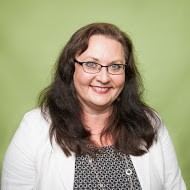

Peer learning is invaluable for hospitality entrepreneurs in a crisis
Published:How can higher education providers best support entrepreneurs? More flexibility and co-creation are essential, says Dr Marjaana Mäkelä, who works in vocational pedagogy.
The pandemic has hit the hospitality sector around the globe particularly hard. In Finland, three higher education providers wanted to explore how they could best help develop hospitality entrepreneurs’ resilience and competences during the difficult period.
The result, the SUN project, was launched in June 2020 by three universities of applied sciences in the Helsinki metropolitan area (Haaga-Helia, Laurea and Metropolia UAS). The project, funded by the regional council Uudenmaan liitto, offered ways to take advantage of a momentary low activity in business by studies, coaching and action research.
Thirteen small or medium-size hospitality companies applied to take part, all struggling with unprecedented challenges caused by decreasing income and lockdown measures. In applications, the need for support was tangible: entrepreneurs felt they were left alone in the crisis.
The SUN project came to an end in the spring 2021. We talked to the Project Manager Marjaana Mäkelä about their key findings and the need to develop more flexible learning models for busy entrepreneurs.
What was the feedback from entrepreneurs participating in the project, and what can adult education providers learn from that?
The feedback from the coaching and study advisor’s sessions reveals that we should never underestimate the power of networking and peer learning as a trigger for positive change. The participants who were the most active in group coaching sessions and found synergy in their business models also expressed the most positive testimonials of empowerment and hope.
Rearticulation is called for in formal education to address the needs of learners from outside the regular student body.
Sharing experiences with peers is invaluable in a crisis and may lead to co-creation and further collaboration. Education providers should provide spaces for these encounters. Systematic co-operation across associations of entrepreneurs and educational institutions would create open discussion forums, which could benefit everyone. I think this should be seen as one important aspect of continuous learning.
Moreover, rearticulation is called for in formal education to address the needs of learners from outside the regular student body. In our project, for example, it became clear that the standard structure of university of applied sciences (UAS) education does not meet the expectations of busy entrepreneurs. They can often find it difficult to attend relatively long courses and lectures at fixed hours.
Was there something that surprised you during the project?
The number of UAS courses the participants completed during the project was lower than the organisers had expected. In response to this, we organised a bespoke series of webinars with themes of resilience building, online business, cultural tourism, and service design.
Positive feedback confirmed that to be able to cater for non-conventional learners such as entrepreneurs with irregular working hours and rapidly changing schedules, it is an imperative to design more flexible learning contexts. One important thing was to provide recordings of lectures, so people could study at a time that works for them.
Moreover, we found that many entrepreneurs found the various e-learning platforms used challenging. Personal help from study advisors was available, however discomfort was expressed with online learning systems.
What would you like to see happen in the future with learning support for entrepreneurs?
A project of ten months is obviously too short to reach conclusions regarding the general design of UAS education. However, I believe the findings in our project reflect a broader disruption in the current and future cohorts of adult learners.
Structures and schedules should be revisited, objectives mapped towards the expectations of learners, and practices constantly challenged to make professional higher education more appealing and accessible to all – and to genuinely promote continuous learning.
In my opinion, the most rewarding outcomes in adult education are obtained in constant dialogue and co-creation.
Marjaana Mäkelä
- (PhD, Lic. Phil., MA, MSc) Principal Lecturer at Haaga-Helia University of Applied Sciences
- Works as a researcher in the team of Engaging Vocational Pedagogy, with responsibilities in vocational teachers’ education, curriculum development, quality management and export of education. Task Manager in European University UlyssEUs
- In pedagogical development of higher education, her areas of expertise relate to continuous learning, validation processes and work-integrated learning. Her research orientation includes study of pedagogical discourse, consumer studies and hospitality education

Author







